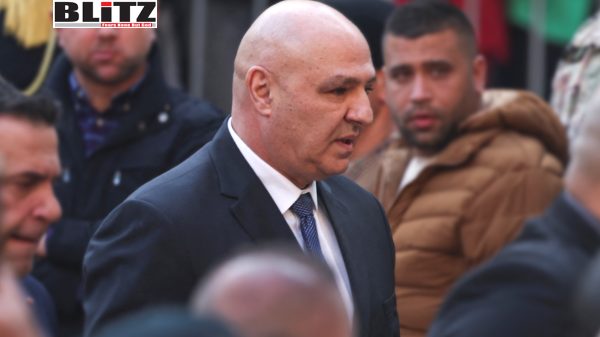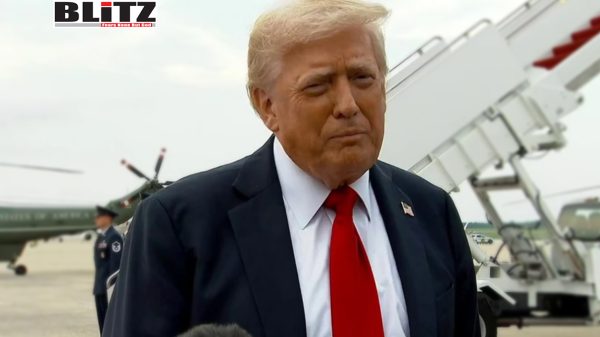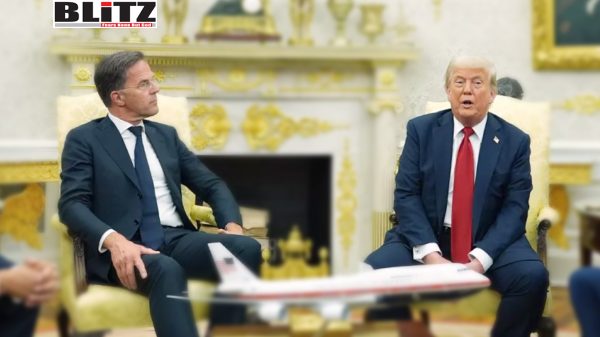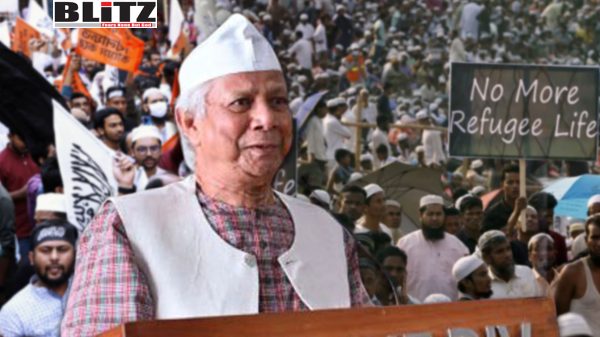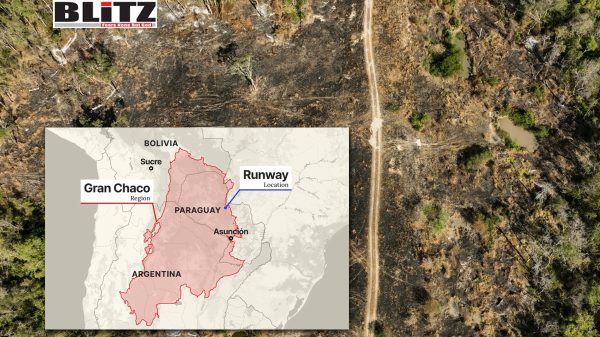The Guardian publishes misleading report against Bangladesh following TIME magazine
- Update Time : Saturday, November 11, 2023

Within less than 10 days of publication of an extremely misleading article in TIME magazine targeting Bangladesh Prime Minister Sheikh Hasina and ruling Awami League, Britain’s prestigious newspaper The Guardian has published a misleading report titled “Full prisons and false charges: Bangladesh opposition faces pre-election crackdown”, where is said, “As Bangladesh heads to elections in January, with Hasina and her Awami League party seeking a fourth consecutive term in office, the authorities have overseen a ruthless crackdown on the main opposition Bangladesh Nationalist party (BNP). Few believe the election will be free, fair or remotely democratic; the BNP have stated that as long as Hasina is in charge, they will not even participate”.
The Guardian further said:
The previous election in 2018 was marred with allegations of opposition harassment and widespread vote-rigging, and was widely decried as non-democratic. Most now assume that similar scenes will unfold in January.
The international community has been attempting to step in and pressure Hasina into holding free and fair elections. This week the British high commissioner met BNP leaders to call to “eschew violence … and hold free, fair and participatory elections”. The US government recently imposed visa restrictions on unnamed government officials “for undermining the election process” and last month the US ambassador to Bangladesh called for Hasina to have a dialogue with the BNP.
Hasina hit back, accusing the US administration of hypocrisy. “Is Biden having a dialogue with Trump? The day they have a dialogue, I will also have a dialogue with the opposition”, she said.
Earlier, TIME magazine in its report titled “Sheikh Hasina and the Future of Democracy in Bangladesh” said: “Bangladesh has taken an authoritarian turn under Hasina’s Awami League party. The last two elections were condemned by the US, EU and others for significant irregularities, including stuffed ballot boxes and thousands of phantom voters. (She won 84% and 82% of the vote, respectively.) Today, Khaleda Zia, two-time former Premier and BNP [Bangladesh Nationalist Party] leader, sits gravely ill under house arrest on dubious corruption charges. Meanwhile, BNP workers have been hit by a staggering 4 million legal cases, while independent journalists and civil society also complain of vindictive harassment. Critics say January’s vote is tantamount to a coronation and Hasina to a dictator”.
Although TIME magazine in its report said “… Hasina derides the BNP as a “terrorist party,” which “never believed in democracy,” stressing its creation by a former junta. “Khalid[a] Zia ruled like a military dictator,” she says with undisguised venom. Hasina highlights the violence BNP supporters have caused in arson attacks following the disputed 2018 election. The BNP, by contrast, points to the systemic repression of their party and trumped-up charges against its leadership. In truth, bloodletting is sadly common on all sides”, it did not say a word about brutal assassination attempt on Sheikh Hasina on August 21, 2004 which was plotted by Tarique Rahman, currently acting chairman of the Bangladesh Nationalist Party (BNP), its ideological ally Jamaat-e-Islami (JeI) and members of terrorist outfit Harkat-ul-Jihad-al-Islami Bangladesh (HuJI-B). It also did not say anything about BNP leader’s direct involvement in helping the United Liberation Front of Assom (ULFA), an insurgency group in northeastern part of India.
It may be mentioned here that, on August 21, 2004, at the direct instructions of Tarique Rahman, terrorists of BNP along with members of militancy outfits such as Harkat-ul-Jihad-al-Islami Bangladesh (HuJI-B) had launched grenade attacks targeting Sheikh Hasina and leaders of Awami League. According to the court verdict, this gruesome attack was a well-orchestrated plan through abuse of state power.
And all the accused, including BNP Senior Vice Chairman Tarique Rahman and former top intelligence officials, were found guilty and handed down various punishments for the grenade attacks that killed 24 people and injured scores. In the murder case, Tarique and 18 others were sentenced to life in prison.
The conviction of these once influential politicians, former top officials of police, DGFI, NSI, CID and top HuJI militants exposes the meticulously-devised plan and abuse of state machinery to not only carry out the attack, but also to mislead the investigation.
In the verdict, Judge Shahed Nuruddin of Speedy Trial Tribunal-1 said: “The specialized deadly US-made Arges grenades that are used in wars were blasted at the Awami League’s central office at 23 Bangabandhu Avenue in broad daylight with the help of the then state machinery. The prosecution has been able to prove that the accused held meetings to conspire in different places before the incident and blasted grenades in a planned manner”.
“After the assassination of the Father of the Nation on August 15, 1975, four national leaders were murdered inside the jail as part of a conspiracy. But the conspiracy did not stop there, it rather continued”, the court noted.
“Later, an evil effort was made to make the Awami League leaderless on August 21, 2004”.
Quoting the testimony of prosecution witness Abdur Rashid, who was junior vice president of an Islamist outfit named Al-Markazul Islami Bangladesh, the court said accused Sheikh Farid, Hannan, Abu Taher, Tajuddin and the witness himself went to Hawa Bhaban, known to be the alternative center of power, in Banani in mid-August of 2004 on a microbus.
A little later Tarique showed up there, reads the judgment.
In his confessional statement, Hannan also said they went to Hawa Bhaban on a microbus of Al-Markazul Islami Bangladesh and met Tarique Rahman along with few other leaders of BNP and Jamaat-e-Islami as well as top officials of intelligence agencies.
They were assured of all kinds of administrative support in the meeting when Tarique Rahman told them to carry out the plan.
The prime target of the attack was AL President Sheikh Hasina, then opposition leader. But Hasina, now the prime minister, narrowly survived as some of her party leaders protected her by forming a human shield around her. She, however, suffered injuries to her ear.
In February 2018, Tarique Rahman and his mother Khaleda Zia were sentenced to 10 years in the Zia Orphanage Trust corruption case. Tarique, who has been living in London since September 2008, was also sentenced to seven years in jail in a money laundering case in 2016.
Major General Gaganjit Singh, former Deputy Director General of India’s Defense Intelligence Agency (DIA), said BNP acting chairman Tarique Rahman was the mastermind of 10 truck arms haul in Chattogram [Chittagong] in 2004.
Talking to India Today and a television channel in Bangladesh, he said the arms were being supplied under direct patronization of the then BNP-Jamaat alliance to use Bangladesh as a sanctuary.
Ten trucks full of arms seized at Chittagong in April 2004 was meant not only for the United Liberation Front of Asom (ULFA) but also for a few other rebel groups in India’s northeast to destabilize the country, he added.
“But he was operating in close coordination with DGFI and some NSI officials who had close links with Tarique Rahman (current acting chairman of BNP) and his cronies in what was then referred to as Hawa Bhaban (political office of BNP)”, disclosed Singh.
The arms were being supplied by taking advantage of the BNP-Jamaat alliance to use Bangladesh as a sanctuary, Singh revealed.
Criticizing TIME magazine article on Bangladesh, Dibakar Dutta, assistant editor to OpIndia in a piece titled “Clear signs of US trying to topple Sheikh Hasina govt: Regime change operation underway in Bangladesh and why India should be alert” wrote:
Elections in Bangladesh are scheduled to take place in January 2024. Sheikh Hasina-led-Awami League is seeking re-election for the third consecutive term. She has been the Prime Minister of the country since 2009.
With just two months away from the elections, the United States government, its agencies and the embedded media are called out for orchestrating a ‘regime change operation’ in Bangladesh.
Attempts are now being made to distort the public perception of incumbent Bangladeshi Prime Minister Sheikh Hasina and present her as an ‘autocratic leader.’ The Joe Biden-led-US government is accused of election interference under the pretext of ‘saving democracy’ and conducting ‘free and fair elections’ in the Islamic Republic [Bangladesh is not an Islamic republic – ed].
Dutta further said, “Besides its official handles, agencies and diplomats, the United States is casting aspersions on the Sheikh Hasina government through its ‘surrogate’ think tanks, media outlets and sponsored individuals”.


